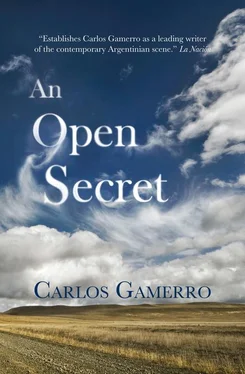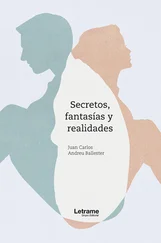“But you warned him,” I intervene.
“I told him, course I did, I told him to look after himself, that there were people in town who wished him ill, that he’d be better off going away for a while, far away, but he, you probably know what he was like from what you’ve been hearing, he got worse, dug his heels in, he said Tell … I can’t remember who he said, Tell whatsisname that if anyone’s going to have to leave town it’ll be him, and tell them from me to find someone else to tend to his horns, I’ve done my bit.” Berraja smiles as he recalls, and mumbles, “Real piece of work that Ezcurrita.”
“But you set him straight? You let him know the problem was with the police?”
Berraja’s initial hesitation gives me the answer his words try to correct.
“A nod’s as good as a wink,” he finally manages to articulate. “I didn’t spell it out to him, the name, if that’s what you’re getting at. But I was certain he’d understood at the time. Subsequent events proved I may’ve been mistaken, but then it was too late to correct my mistake. I did a fair bit, while his lifelong friends, his partners, his neighbours, even his relatives left him to his fate without so much as batting an eyelid. If Ezcurra’d been less pig-headed, less proud, less omnipotent, he’d’ve realised straight away. But there’s none so deaf as those that will not hear you know. Besides, they were both customers,” he adds unnecessarily.
“Both?” I ask.
“Ezcurra and the Superintendent. They’re both dead so I can permit myself the breach of confidence, though I can’t do the same about their partners of the fair sex you’ll understand,” he says in a winking tone, which fortunately his eye refrains from backing up. “What’s more, that week halfway through the week, they ran into each other here one night at the entrance — Ezcurra on his way out, the Super on his way in. I was a witness. You can just imagine, by that stage there was nobody who didn’t know what was afoot, not even Ezcurra, or so I thought, though I’d mistaken what was sheer foolishness for courage. The glances of the men who’d be victim and executioner crossed for a second, you could hear the toads croaking in the lagoon in the silence that ensued. Then Ezcurra acknowledged the Super with a nod and a half-sardonic smile and left with his bird on his arm. The Super left his — always the same one, methodical the Super was — and came over to the window. Does he know anything? he asked me with his eyebrows. Not from me I gave him to understand, shrugging my shoulders, and he believed me. I swear, for a moment there I was afraid he’d rumbled me, went weak at the knees I did, I can remember as if it was yesterday, soon as he’d gone after his chinita I had to sit down and have a couple of whiskies before I could carry on.”
“AND CLOTA, poor thing, so fond of God’s creatures she was, ’cause she couldn’t have children I say, well she did have one that died young she told Chesi and me once and they couldn’t have any more after that one or didn’t want any, I’m not sure, you know Fefe when there’s a misfortune like that you try to avoid the subject; and just imagine us asking her husband — a very helpful man the Superintendent was, but with secrets not just professional ones, wait I’ll tell you in a minute, he couldn’t keep that one from us, silent as the grave he was, and I reckon that that must’ve been why she was so fond of animals, full of cages the house was and a pair of little plovers loose in the garden and sometimes even a martineta which didn’t last her long see on account of the possums and you can’t keep them in the hen coop ’cause the hens’ll kill them her husband used to bring them back for her when he went hunting famous for his aim he was if he wanted to he’d kill them and if he didn’t he wouldn’t and take them back home as a present for his wife. But her favourite was the little dog she was given when they first moved to town, by … oh of course your grandparents what a scream Fefe I was about to say the Echezerretas as if you didn’t know them I’ll forget my head next but your Auntie Porota’s getting on,” my grandmother’s friend, whom I’ve always called Auntie, will say to me, and her sister Chesi will look up from her knitting and smile. “Adored that little dog she did, from being a puppy she’d make it talk like a person you know Mummy Mummy give me those ickle bonies from the barbie Clota’d pretend the little thing said what was it called Chesi and she’d take it out for walkies oh you know with little bows on and all dolled up because truth be told it was a lovely gesture of your grandparents’ but the little tyke didn’t have much of a pedigree to be honest and well that’s what I wanted to tell you her husband also had one of his own not much of a pedigree either I can tell you why would I beat about the bush Fefe dear we can call things by their names a bit of chinita fluff she was and to make matters worse she was so young coming out of school in her white pinafore, she must’ve been around fifteen then but she was still in sixth grade, didn’t have much up here, worked for me at one time she did and I had to send her back. So she’d come out of school and make straight for the headquarters, but that wasn’t enough for him, he had a room booked in that hotel on the highway, I don’t know if you saw it on your way into town … Can you imagine Fefe! A hotel room, and all for a chinita ! And poor Clota, how couldn’t she have known, she was bound to. She played stupid poor thing. But then she wouldn’t’ve been the first, or the last, there are times that look, all sorts goes on in these towns we’d prefer not to know about.”
“EZCURRA USED TO DO HER, know what I mean?” Sacamata junior asks Guido unnecessarily and winks at him. “That chinita of Neri’s, La Nena they used to call her. Got enough for the first one?” he asks his partner, Licho, who mutters, “They’re yours,” eyeing the only card on the table, my dodgy six of cups. “That’s the reason the only reason Neri whacked him. Mum’s the word,” he says and plays a knave of clubs. “That whole circus of the general inquiry was to hide his real motives,” he goes on and I make the most of the opportunity to give Guido the signal. To get our opponents to bite he opts to bait the hook in silence and make the first with a three of coins to distract them. “Rosas Paz’s request suited him down to the ground and if he played hard to get it was only to throw people off the scent. To the girl he … Call!” he abruptly orders his partner, who shakes his head.
“They’re loaded Batata,” he mutters sceptically. “They’re trying to draw us in.”
“Nah bag o’ nails, look what they played. Call I’m telling you,” he insists, and as a man resigned to his fate, Licho calls an envido that Sacamata and Guido promptly double and triple. “Thirty-three,” I say first, having led, and after the superfluous “They’re good,” Licho plays his three of swords to match my lead and rescue what’s left of the hand. Six beans slide my way over the table.
“They don’t lie but they are tricky,” Licho reflects philosophically, and Sacamata junior adds, “Don’t worry, we’ll get our own back in the second. What can they do to us with the seven of cups and where was I oh yes if you don’t believe me,” he says to Guido, “explain that business about La Nena got off lightly she did with a man’s haircut, shorn for a whore she was and that’s as far as Neri went, after all anyone who’d stoop any lower for a chinita looks like a right berk,” he concludes, while I turn up the corner of the six of swords and give Guido the signal for the seven.
TO SEE IF I CAN LET OFF some of the accumulated anger that’s starting to blind me, I decide to go out running one afternoon with Guido along the edge of the lagoon. Charging into the wind, which is like a hand on my chest pushing me backwards, skipping over strips of tyre, rusty tin cans and dead caracaras littering the verge, I rattle out what’s been eating away at me before I run out of breath.
Читать дальше












